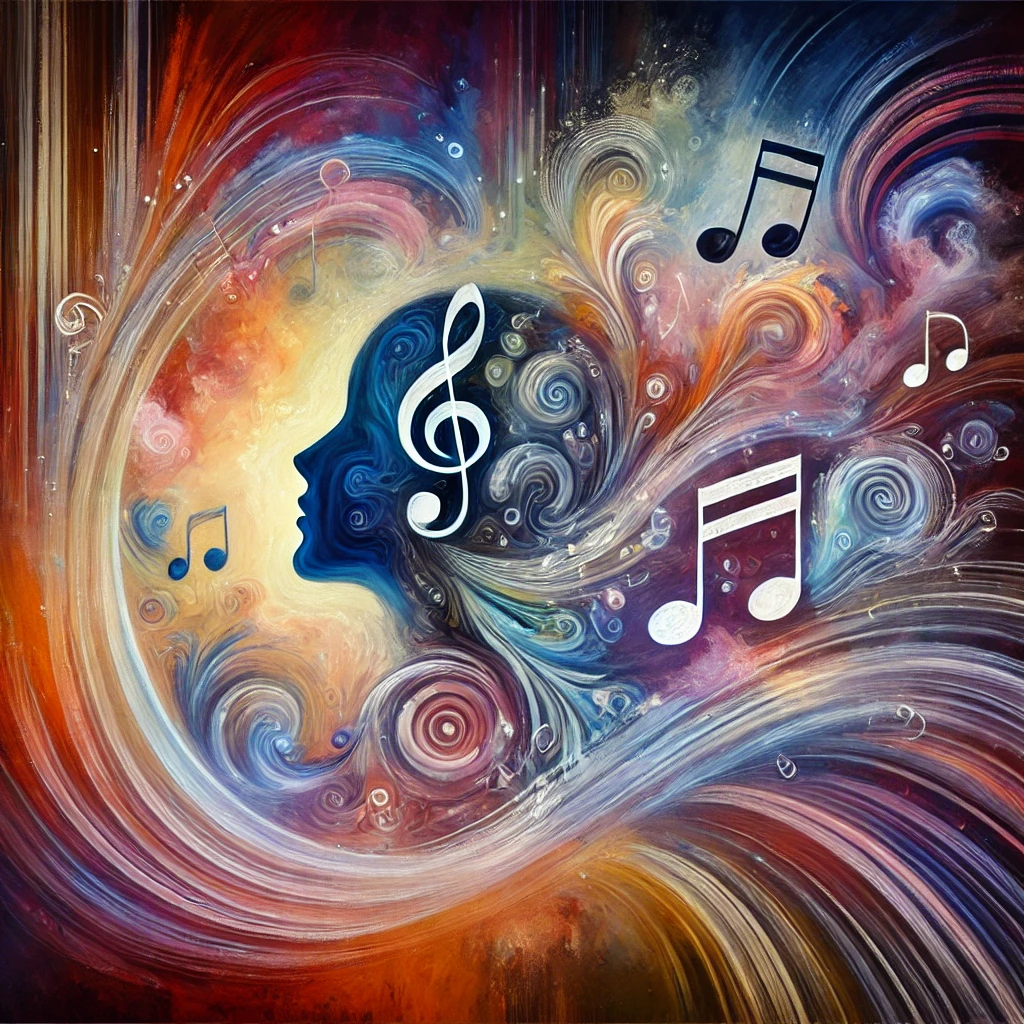The Impact of Music on the Mind and Soul
Key Takeaways:
– Music profoundly influences emotions and well-being, acting as a powerful emotional stimulant.
– Engaging with music enhances cognitive abilities and contributes to neuroplasticity.
– Music therapy offers healing benefits for mental health and chronic pain management.
The Emotional Effects of Music
Emotional transformation often accompanies a favorite song playing on the radio or a haunting symphony filling a concert hall. Music taps into our emotions, invoking feelings of joy, sadness, nostalgia, or excitement. Numerous studies show that music can act as a powerful emotional stimulant.
The Science of Emotion in Music
Our brains process musical elements such as rhythm, melody, and harmony. These elements elicit emotional responses by activating brain areas linked to emotions like the amygdala. For example, upbeat music might stimulate happiness and energy, while slower, soulful pieces could evoke a sense of tranquility or even melancholy.
Furthermore, music induces the release of neurotransmitters such as dopamine, associated with pleasure and reward. This biochemical effect explains why music often sends chills down our spines or brings tears to our eyes. It becomes more than just sound; it becomes an emotional experience that resonates with our own life stories.
Music as an Emotional Outlet
Many people turn to music as a form of emotional release. Whether through composing, playing an instrument, or simply listening, music provides an outlet for expression. Artists often use music to convey experiences they find difficult to articulate through words alone.
Listeners connect with these expressions, finding solace or understanding in shared human experiences. The next time you feel overwhelmed by emotions, consider turning to music. Allow its rhythms and melodies to guide you through your emotional journey.
Cognitive Benefits of Music
Beyond emotions, music also contributes to cognitive enhancements. Engaging with music can improve brain functions, supporting a more agile mind. Let’s delve into some of the cognitive advantages that music offers.
Enhancing Memory and Attention
Research indicates that musical training can bolster memory and attention. Musicians often display enhanced verbal memory and aural skills compared to non-musicians. Learning an instrument requires discipline and focus, qualities that translate into other life areas.
Moreover, exposure to music can improve concentration. Classical music, in particular, is linked to enhanced cognitive performance, a phenomenon often referred to as the “Mozart Effect.” While listening to Mozart may not make you a genius overnight, it can create a conducive environment for studying or working.
Music and Neuroplasticity
Another fascinating aspect of music is its role in neuroplasticity—the brain’s ability to reorganize itself by forming new connections. Musicians often show increased connectivity between different brain regions. Regular engagement with music through practice or active listening can lead to improved cognitive abilities.
Furthermore, music therapy has become a cornerstone in rehabilitation for stroke and brain injury patients. By engaging with music, patients can stimulate neural pathways that assist in regaining lost motor or language skills.
Music Therapy: Healing the Mind and Soul
Music therapy is a burgeoning field that utilizes music to promote healing and well-being. Certified music therapists design tailored interventions to address specific physical, emotional, cognitive, or social needs. This therapeutic approach recognizes the inherent power of music to heal and transform lives.
Addressing Mental Health Through Music
Music therapy has shown effectiveness in treating a range of mental health conditions, including anxiety, depression, and PTSD. By establishing a therapeutic alliance through music, therapists can help individuals express their emotions safely and creatively. This process can unlock healing and promote a sense of empowerment and self-awareness.
For those dealing with loss, music provides a non-verbal means of grieving and celebrating memories of loved ones. It comforts and assists in processing sorrow, fostering healing.
Music and Chronic Pain Management
Chronic pain can sap joy from life, making everyday tasks daunting. However, music therapy offers a complementary avenue for pain management. Listening to music can decrease perceived pain levels by redirecting focus and promoting relaxation. Patients often report reduced pain and enhanced mood when incorporating music into their care plans.
In practice, soothing music can help lower heart rates and blood pressure, introducing a state of calm that naturally alleviates tension-driven pain. This calming effect reinforces the importance of incorporating music into holistic wellness approaches.
Music and Overall Well-Being
Music is not merely a background element; it plays a vital role in our overall well-being. It fosters community, cultivates creativity, and enhances our quality of life.
Building Connections Through Music
Music serves as a universal language, bridging cultural and linguistic divides. Live concerts, choir practices, and community drum circles exemplify music’s role in uniting people. These shared experiences forge lasting connections and promote a sense of belonging.
Furthermore, engaging in group music activities taps into collective creativity. It encourages teamwork, listening, and collaboration. Whether singing in a choir or strumming a guitar, music fosters relationships rooted in harmony—not just in notes but in fellowship.
Embracing Creativity
Creativity is the soul’s voice, and music provides a platform to unleash this creativity. Even if you do not play an instrument or consider yourself a musician, experimenting with music can spark innovative thinking. Approaching life with creativity can lead to newfound perspectives and solutions to challenges.
Moreover, creating or exploring music can lead to personal fulfillment and joy. It redirects focus from stressors, immersing you in the moment’s beauty. Engaging with music can be a meditative practice that rejuvenates and inspires.
Practical Ways to Integrate Music into Daily Life
Given music’s remarkable impact, incorporating it into daily routines can enhance mind and soul well-being. Here are practical ways to infuse your life with music:
- Morning Boost: Start your day with an energizing playlist. It sets a positive tone and prepares you to face the day’s challenges.
- Mindful Listening: Take a few moments each day for mindful listening. Choose a piece of music and immerse yourself wholly, focusing on each instrument and note.
- Instrument Exploration: Consider learning a new instrument. Even simple tunes can uplift the spirit and activate cognitive faculties.
- Music and Exercise: Combine exercise with music. An upbeat playlist can motivate and transform your workout into a joyful experience.
- Community Engagement: Join a local band, choir, or music group. These activities forge camaraderie and provide an outlet for creative expression.
In conclusion, music enriches the journey of life by influencing our emotions, bolstering our minds, and nurturing our souls. As we navigate life’s complexities, let music be a companion that inspires, comforts, and heals. Embrace the notes that resonate with you, let their melodies guide you, and experience the profound impact of music on the mind and soul.



